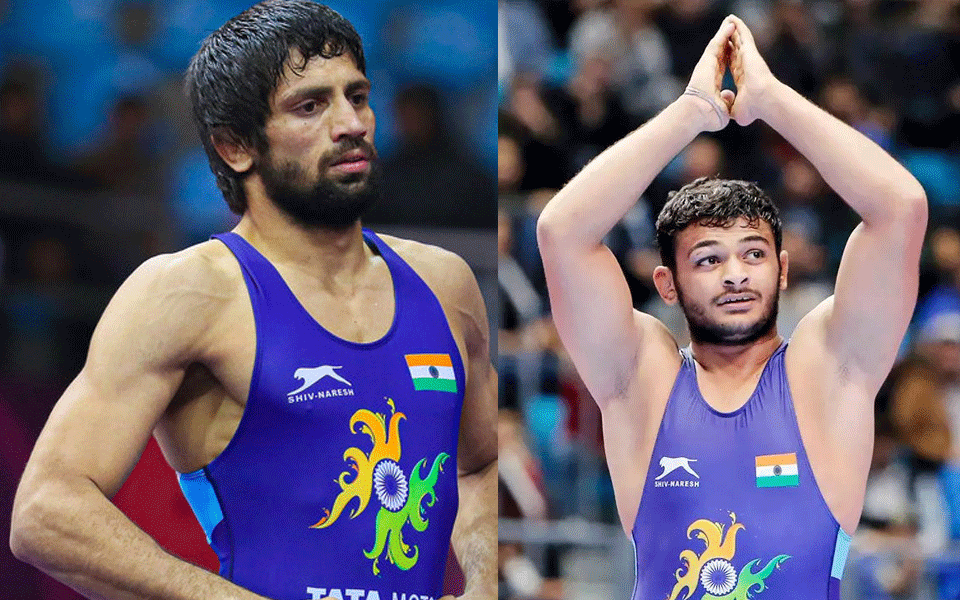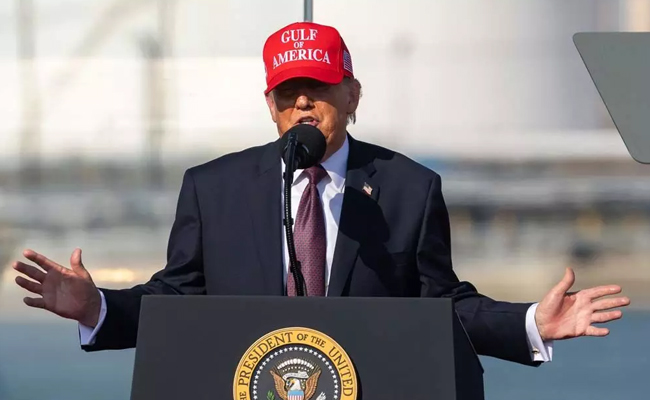Chiba (Japan): Ravi Dahiya was his usual dominant self while Deepak Punia pulled off a decisive two-pointer towards the end of his quarterfinal as the two Indian wrestlers stormed into the semifinals of the Tokyo Olympics, here on Wednesday.
Such was the dominance of 23-year Dahiya that he won both his bouts on technical superiority to set up a 57kg semifinal clash with Kazakhstan's Nurislam Sanayev.
Deepak made the most of an easy draw by getting past Nigeria's Ekerekeme Agiomor, the African championship bronze medallist by technical superiority and then prevailed 6-3 against China's Zushen Lin in the quarterfinal.
The fourth-seeded Dahiya outclassed Colombia's Tigreros Urbano (13-2) in his opener and then outwitted Bulgaria's Georgi Valentinov Vangelov (14-4).
Against Urbano, Dahiya remained dominant, apart from conceding a take-down in the first period.
The reigning Asian champion nailed the win with one minute and 10 seconds still remaining in the bout, which was stopped after he raced to a winning lead.
The Indian effected five take-down moves in the second period, showing his technical prowess.
Against Vangelov, Dahiya relied on his double leg attacks, building his lead gradually.
In the 86kg, the Nigerian had the power but Deepak was technically sound and won comfortably. Against Lin, though, the 22-year-old Indian struggled.
He opened up a 3-1 lead but Lin effected a takedown to make it 3-3 and head on criteria. The referee awarded two points to Deepak for a throw but the Chinese won the challenge.
With just 10 seconds to go and Chinese ahead on criteria, Deepak managed to get under Lin and with his strong grip pulled both of Lin's legs in the air and threw him for a two-pointer to clinch the contest.
He will now be up against 2018 world champion American David Morris Taylor. The only disappointing result for India on the mat was the 2-8 defeat of Anshu Malik against European champion Irina Kurachikina.
Asian champion Anshu made a strong comeback after conceding a 0-4 lead against the Belarusian with two push out points.
She also managed to get hold of Kurachikina's right leg but could not complete the move.
On the counter attack, Anshu conceded another two-pointer but kept fighting. The European relied on her experience to prevail.
Anshu's chances to come back in the competition will depend on Kurachikina's progress. If the Belarusian makes the final, Anshu will get a repechage round.
Let the Truth be known. If you read VB and like VB, please be a VB Supporter and Help us deliver the Truth to one and all.
Srinagar(PTI): Authorities on Monday imposed several restrictions in parts of Kashmir where massive street protests were witnessed over the killing of Iran's supreme leader Ayatollah Ali Khamenei in a joint strike by the US and Israel.
The iconic Ghanta Ghar at Lal Chowk has been sealed with barricades erected all around it, officials said.
They said a large number of police and paramilitary CRPF personnel have been deployed across the city to prevent gatherings of protestors.
Khamenei was killed in an airstrike in Tehran on Saturday during a joint Israel-US attack on Iran. Iranian state media confirmed the same on Sunday, triggering a wave of protests and mourning across the world, including India.
Kashmir — which has about 15 lakh Shias — witnessed major protests at Lal Chowk, Saida Kadal, Budgam, Bandipora, Anantnag and Pulwama, an official said.
The protesters were seen beating their chests as they shouted anti-US and anti-Israel slogans.
The officials said the restrictions were imposed as a precautionary measure to maintain law and order.
Concentrated wires and barricades have been placed at important intersections leading into the city, they said.
Similar curbs have been imposed in Shia-dominated areas in other districts of the valley.
The restrictions come in the backdrop of a one-day strike call given by Mutahida Majlis-e-Ulama (MMU) chairman Mirwaiz Umar Farooq.
"We urge the people to observe it with unity, dignity, and complete peacefulness," the Mirwaiz said.
The MMU strike call was supported by several political parties, including opposition PDP president Mehbooba Mufti.
"Extending our full support and solidarity with the shutdown call of Mirwaiz Umar Farooq on the martyrdom of Iran's Supreme Leader. This is a day of mourning to remind the world that injustice anywhere wounds the entire Muslim Ummah and all who stand for truth," Mufti said.
The authorities have also closed all educational institutions, including private schools, for two days, as a precautionary measure for the safety of students and to maintain law and order.


_vb_99.jpeg)


